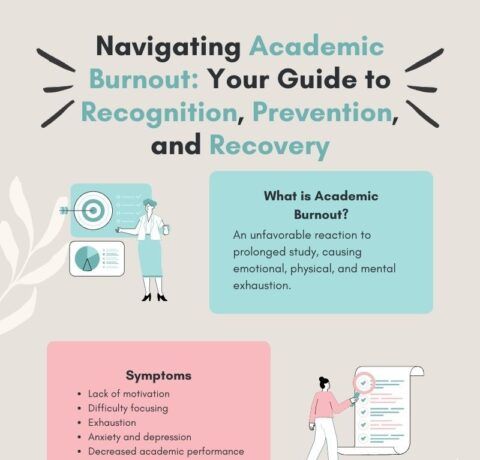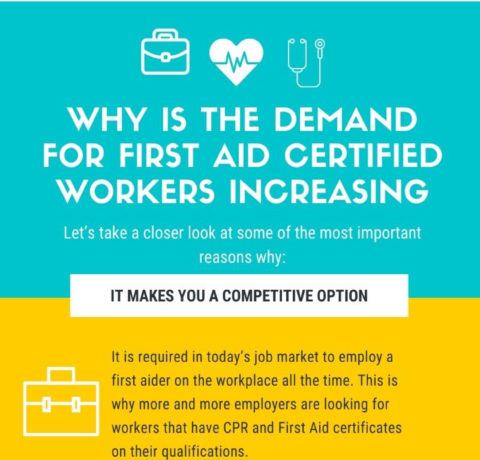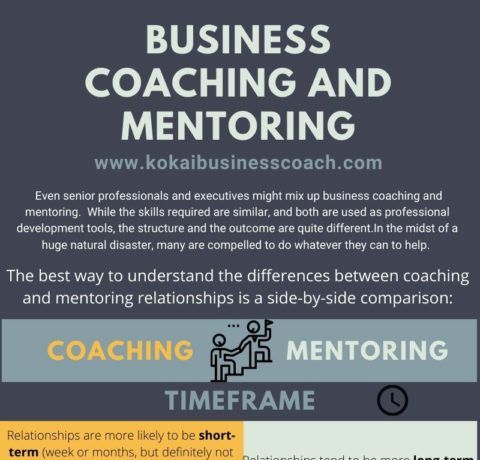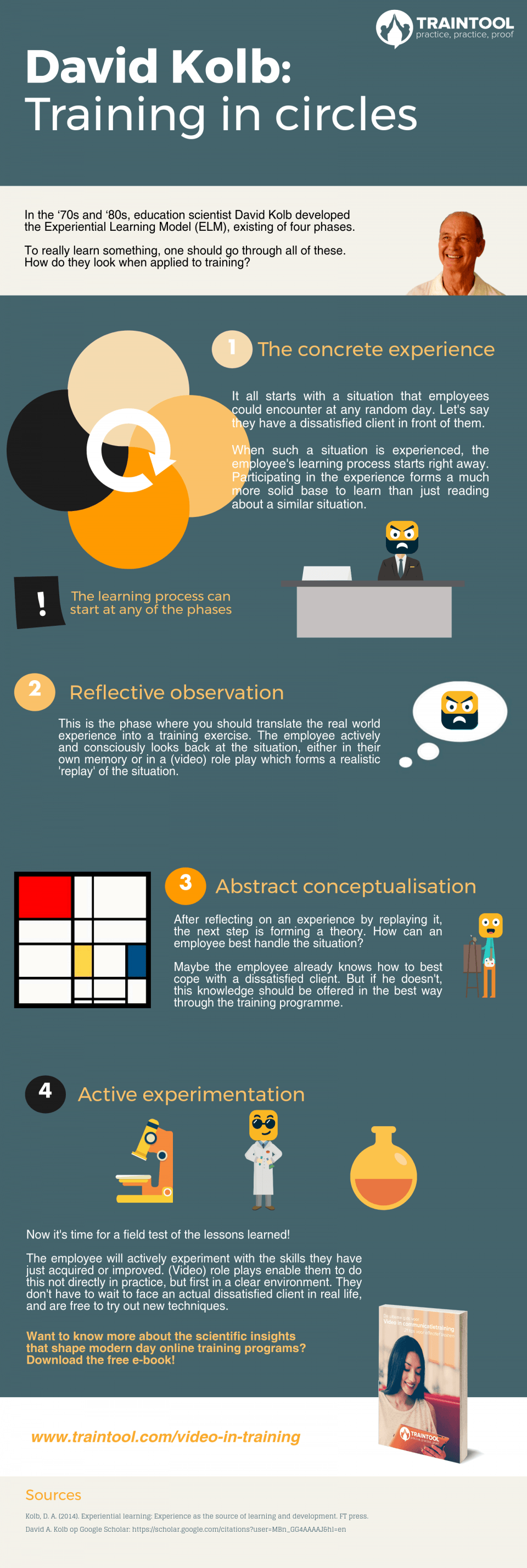David Kolb: Training in Circles Infographic
Learning never stops. It is a circular process that is better explained to us by education scientist David Kolb. Together with Ron Fry, he constructed a theory that has proved its relevance since the 70s and still helps in developing (online) training programs. This infographic shows why you should train in circles.
In 1984, David Kolb, published a ground breaking book entitled Experiential Learning: experience as the source of learning and development. This book essentially exposed the principle that a person would learn through discovery and experience. The reason the theory is called "experiential" is its intellectual origins are taken from the experiential work of Lewin, Piaget, Dewey, Freire and James, forming a unique perspective on learning and development.
Experiential Learning Theory (ELT) provides a holistic model of the learning process and is a multi-linear model of adult development, both of which are consistent with what we know about how we naturally learn, grow, and develop. The theory is called "Experiential Learning" to emphasize the central role that experience plays in the learning process.
Kolb's Experiential Learning Cycle
Kolb's cycle starts with a concrete experience. In other words it begins with doing something in which the individual, team or organisation are assigned a task. Key to learning therefore is active involvement. In Kolb's model one cannot learn by simply watching or reading about it, to learn effectively the individual, team or organisation must actually do.
The second stage in the cycle is that of reflective observation. This means taking time-out from "doing" and stepping back from the task and reviewing what has been done and experienced. At this stage lots of questions are asked and communication channels are opened to others members of the team. Vocabulary is very important and is needed to verbalize and discuss with others.
Abstract conceptualisation is the process of making sense of what has happened and involves interpreting the events and understanding the relationships between them. At this stage the learner makes comparisons between what they have done, reflect upon and what they already know. They may draw upon theory from textbooks for framing and explaining events, models they are familiar with, ideas from colleagues, previous observations, or any other knowledge that they have developed.
The final stage of the learning cycle is active experimentation i.e. when the learner considers how they are going to put what the have learnt into practice. Planning enables taking the new understanding and translates it into predictions as to what will happen next or what actions should be taken to refine or revise the way a task is to be handled. For learning to be useful most people need to place it in a context that is relevant to them. If one cannot see how the learning is useful to one's life then it is likely to be forgotten very quickly.
See also: Six Experiential Learning Activities to Use in Corporate Training Infographic







You can adjust your cookie preferences here.